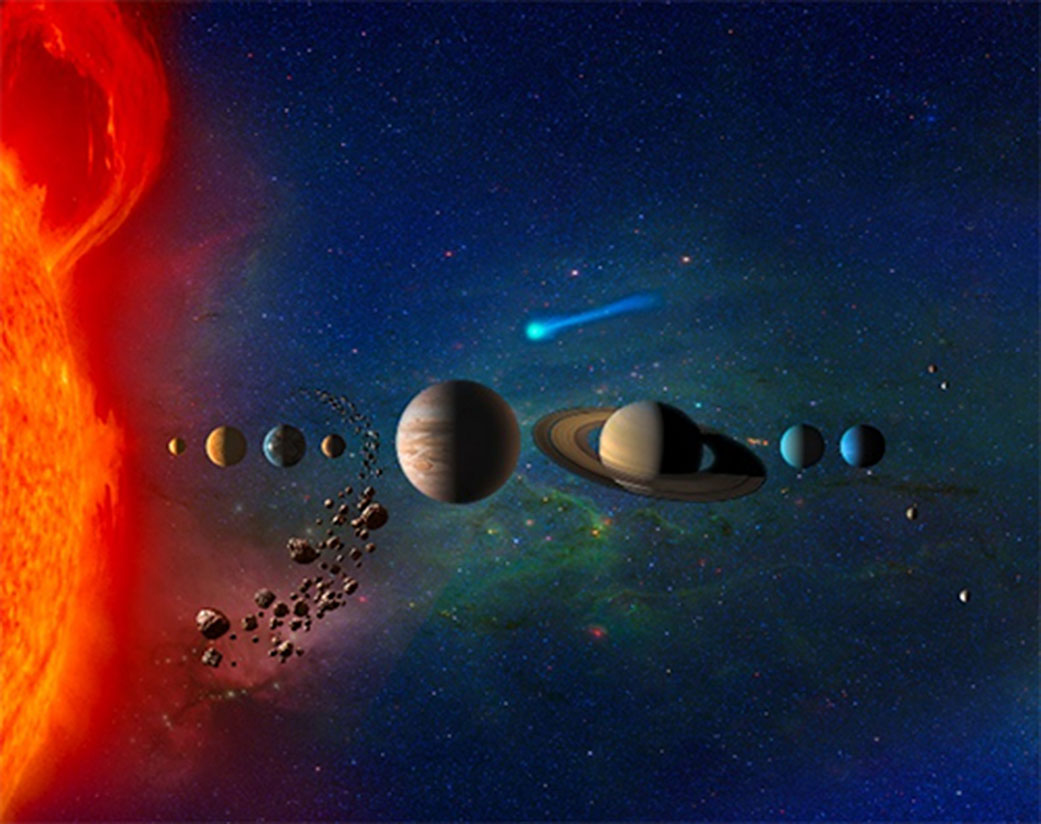
MAVEN: U-M Alumna Leads Extended Planetary Science Mission for NASA
NASA has extended the MAVEN (Mars Atmosphere and Volatile Evolution) mission, with U-M Climate and Space Alumna Dr. Shannon Curry taking the lead.

NASA has extended the MAVEN (Mars Atmosphere and Volatile Evolution) mission, with U-M Climate and Space Alumna Dr. Shannon Curry taking the lead.
Under the leadership of a new principal investigator, NASA has extended the MAVEN (Mars Atmosphere and Volatile Evolution) mission, with U-M Climate and Space Alumna Dr. Shannon Curry at the helm. According to NASA, the planetary science mission of the spacecraft has been extended because of its scientific productivity and potential to deepen our knowledge and understanding of the solar system and beyond.
The Mars Atmosphere and Volatile Evolution (MAVEN) mission plans to study the interaction between Mars’ atmosphere and magnetic field during the upcoming solar maximum. MAVEN’s observations as the Sun’s activity level increases toward the maximum of its 11-year cycle will deepen our understanding of how Mars’ upper atmosphere and magnetic field interact with the Sun.
MAVEN is one of eight missions that will be extended, including Mars Odyssey, Mars Reconnaissance Orbiter, Mars Science Laboratory (Curiosity rover), InSight lander, Lunar Reconnaissance Orbiter, OSIRIS-REx, and New Horizons. They have been selected for continuation, assuming their spacecraft remain healthy, with most of the missions being extended for three years.
Each extended mission proposal was reviewed by a panel of independent experts drawn from academia, industry, and NASA. In total, more than 50 reviewers evaluated the scientific return of the respective proposals. Two independent review chairs oversaw the process and, based on the panel evaluations, validated that these eight science missions hold substantial potential to continue bringing new discoveries and addressing compelling new science questions.
Beyond providing important programmatic benefit to NASA, several of these missions promise multi-divisional science benefits across NASA’s entire Science Mission Directorate (SMD), including their use as data relays for Mars surface landers and rovers, as well as to support other NASA initiatives such as the Commercial Lunar Payload Services (CLPS).
Curry, who now serves as the P.I. for the MAVEN mission, earned a B.S. in Astrophysics from Tufts University before attending the University of Michigan graduate program in science, technology and public policy. She completed her Ph.D. in Planetary Physics from the U-M College of Engineering in the Department of Climate and Space Sciences and Engineering. For many years, she has made important contributions as a postdoctoral fellow at the University of California, Berkeley, where she serves as the Deputy Associate Director for Planetary Science and Astrobiology.
Image courtesy of NASA.